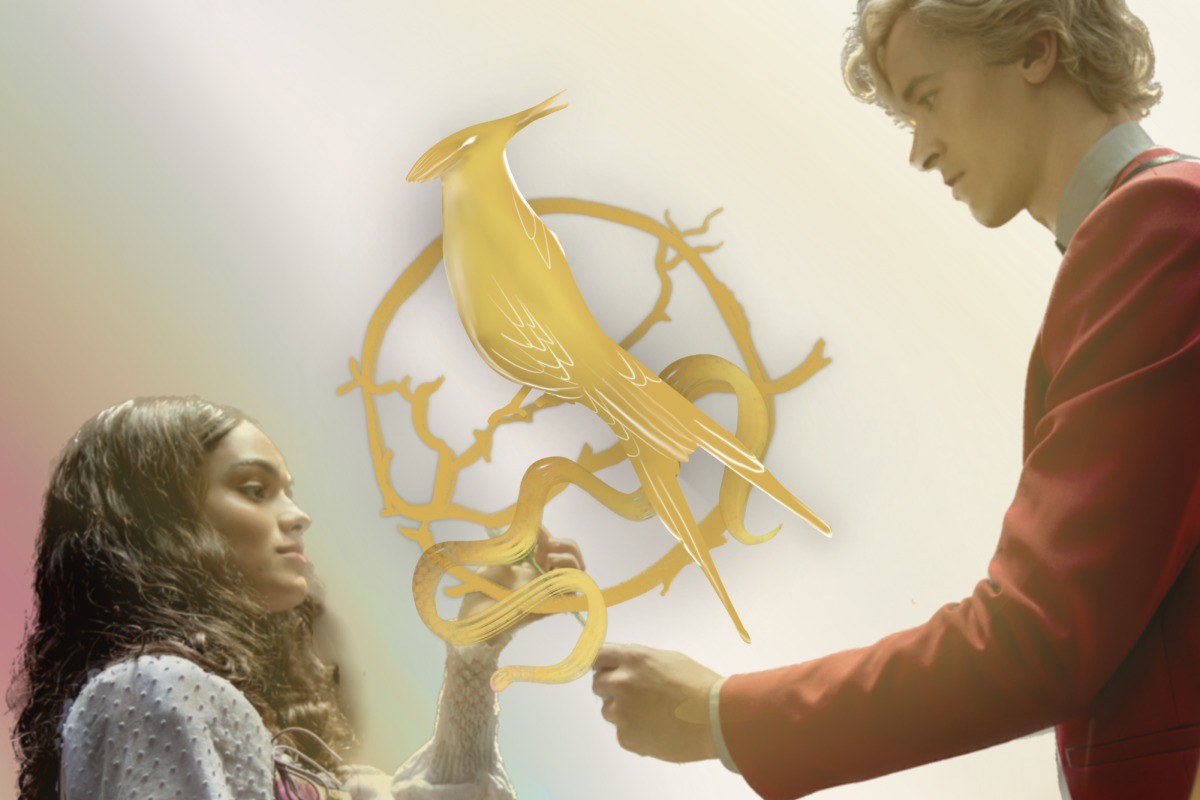“The Hunger Games” universe is back on the big screen, and it’s more unsettling than ever.
This time around, a young and compelling Coriolanus “Coryo” Snow (Tom Blyth) occupies the limelight. Alongside him is Rachel Zegler, playing the unique role of Lucy Gray Baird, a wanderer who finds herself in District 12 during “The Reaping” for the 10th Annual Hunger Games.
Set 64 years before the original trilogy, there is no rebellion in this story. Rather, the political focus is a web of bitter rivalries in The Capitol. Snow is seeking to reestablish his family by promoting the games, but their creator, Casca Highbottom, (Peter Dinklage) is determined to see him fail. The hyper-stylized, unnerving Dr. Volumnia Gaul (Viola Davis) supports Snow’s efforts, contrary to his close friend Sejanus Plinth (Josh Andrés Rivera).
The games are less developed than in prior films, more reminiscent of the Roman Colosseum than a techno-battlefield. Yet, removing the artificiality of the games only serves to amplify the depravity they represent. The violence is more archaic ― and accordingly brutal ― than in the other movies.
Commentary on the institution of the games is everywhere. As the contestants enter the arena through a turnstile, a speaker eerily exclaims “enjoy the show.” Television announcer Lucky Flickerman’s (Jason Schwartzman) one-liners follow visceral killings in the arena, too immediate to be anything but repulsive for the audience. Dr. Gaul reveals the moral debate of the film when she says, “what happened in there, that’s humanity undressed.”
The movie is divided into three sections, but the games themselves are only part of the story. After “The Mentor” and “The Games” comes “The Peacekeeper,” where Coriolanus and Lucy Gray exit the bleakness of The Capitol for the mining and meadows of District 12. As the pace slows, the tension rises; open fields and green forests become perilous and unknown.
Here, the film’s excellent cinematography and editing shows its flexibility as it transitions from an action packed first two acts to a slow burn until the end.
This is the most intriguing part from a character perspective. Tom Blyth shines as we watch Coryo’s subtle machiavellianism devolve into blatant treachery at the end.
Rachel Zegler, too, deserves praise. Her radiant voice and verve make the character of Lucy Gray sing ― literally and otherwise ― in a way few others could.
These two characters intertwine for a kind of love story you’ve seen before. It’s Rey and Kylo, Christine Daaé and the Phantom, even Gatsby and Daisy. It’s two lovers on opposite sides of a moral conflict that simultaneously pulls them together and tears them apart.
In this film, the dynamic works well. Lucy Gray is the ethereal representation of the premise that humans are essentially good while Coryo ultimately sides with Dr. Gaul and the Hunger Games, believing that humanity’s intrinsic evil needs to be overridden.
The Hunger Games is at its best when it is exploring morality and retribution via compelling characters and thought-provoking context. While “The Ballad of Songbirds & Snakes” is not perfect, the ballad lives up to its name –– it’s a doomed romance that marries the song of the mockingjay with the venom of the snake.
Email: rhyshalaby2026@u.northwestern.edu
Related Stories:
— Reel Thoughts: ‘The Holdovers’ is a heartwarming success
— Reel Thoughts: ‘The Creator’’s reach exceeds its grasp
— Reel Thoughts: ‘A Haunting in Venice’ sees Hercule Poirot reinvented for a spooky, successful sequel



















